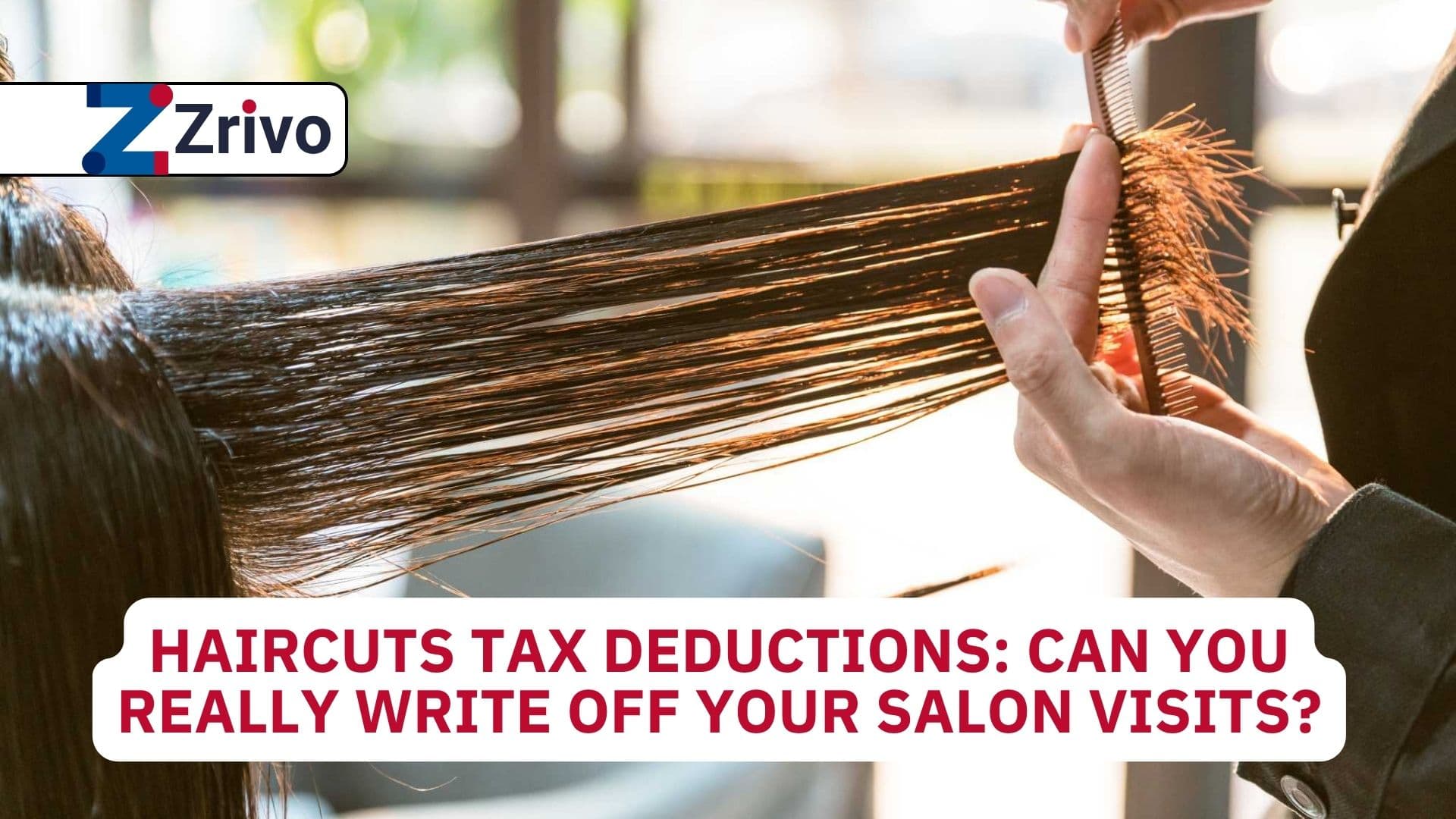
If you’ve ever wondered whether you can claim your haircuts as a tax deduction, you’re not alone—“haircuts tax deductions” is one of the most searched-for topics during tax season, especially among freelancers, business owners, and anyone who wants to lower their tax bill. The idea of turning regular salon visits into a tax write-off is appealing, but the IRS has strict rules about what counts as a business expense versus a personal expense. Generally, haircuts and other grooming costs are considered personal and not deductible, even if you need to look sharp for work. However, there are rare exceptions for certain professions, like actors and performers, where appearance is integral to the job. In this article, we’ll break down the IRS guidelines on haircuts tax deductions, explore who might qualify, and offer tips to stay compliant (and stylish) without risking an audit. Whether you’re a creative professional, small business owner, or just tax-curious, understanding the rules around haircuts tax deductions can help you avoid common pitfalls and maybe even save a little money.
What Are Haircuts Tax Deductions?
A haircuts tax deduction refers to the idea of writing off the cost of your haircuts as a business expense on your tax return. While it sounds tempting, the IRS almost always considers haircuts, hair styling, and other grooming costs as personal expenses, not business deductions—even if your job requires you to look polished or professional. The key distinction is whether the expense is “ordinary and necessary” for your specific trade or business, and whether it’s truly exclusive to your work.

IRS Rules: Personal vs. Business Expenses
The IRS draws a hard line between personal grooming and business expenses. Here’s what you need to know:
- Personal grooming expenses (haircuts, makeup, skincare, etc.) are not deductible for most taxpayers, even if your employer expects you to maintain a certain appearance.
- To qualify as a deduction, the expense must be both “ordinary” and “necessary” for your trade or business, and not suitable for everyday personal use.
- Routine haircuts for general appearance are never deductible. The IRS and tax courts have consistently denied deductions for news anchors, consultants, and other professionals who tried to claim haircuts as a business expense.
The Rare Exceptions: When Haircuts Might Be Deductible
There are a few narrow exceptions where haircuts and grooming expenses could be deductible:
- Actors, performers, and models: If your role requires a specific hairstyle or look that is not suitable for everyday wear, and you incur the expense solely for a performance, photoshoot, or production, you may be able to claim it as a business expense.
- Special events: One-time hair styling for a specific, documented business event (like a photoshoot or performance) may be deductible, but routine maintenance is not.
- Industry standards: If you work in an industry where maintaining a highly specific appearance is integral to your income (such as professional modeling or stage performance), and you can prove the expense is “wholly and exclusively” for business, you may have a case—but documentation is critical.
Important: Even in these cases, deductions are heavily scrutinized by the IRS, and you must keep detailed records to support your claim.

Famous Example: The Trump Haircut Deduction
You may have heard about Donald Trump’s company reportedly deducting $70,000 for haircuts and styling during “The Apprentice.” While high-profile, this case drew controversy and IRS attention because such deductions are rarely allowed for most taxpayers and are only justified in very specific circumstances.
What Happens If You Deduct Haircuts Without Qualifying?
- Increased audit risk: Claiming personal grooming expenses as business deductions can trigger an IRS audit.
- Possible penalties: If the IRS disallows your deduction, you could owe back taxes, interest, and penalties.
- Best practice: When in doubt, consult a tax professional before claiming any unusual deduction.
Documentation: Your Best Friend (If You Qualify)
If you genuinely qualify for a haircuts tax deduction (e.g., as a performer), keep:
- Receipts from salons or stylists
- Contracts or documentation linking the expense to a specific role or event
- Photos or evidence showing the unique style required for the job
Quick Recap: Can You Deduct Haircuts?
- No for most people—haircuts are considered personal expenses.
- Yes, but only in rare, well-documented cases for actors, performers, and certain entertainers.
- Always keep records and consult a tax professional if you think you might qualify.

FAQs
Q: Can I deduct my haircut as a business expense if I need to look professional for work?
A: No, the IRS considers haircuts and grooming personal expenses, even if your job requires a professional appearance.
Q: Are there any jobs where haircuts are tax deductible?
A: Yes, but only in rare cases—like actors, performers, or models who need a specific look for a role or event. Even then, strict documentation is required, and routine haircuts still aren’t deductible.
Q: What happens if I claim haircuts as a deduction without qualifying?
A: You risk an IRS audit, possible penalties, and having to repay any tax savings with interest.
Ready to keep your finances (and your hair) in top shape? Remember: when it comes to haircuts tax deductions, it’s better to play it safe, stay stylish, and always check with a tax pro before snipping away at your tax bill!